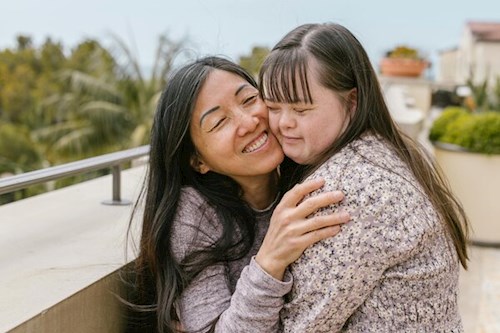Supporting Those with Developmental Disabilities
Discovering ways to support individuals with disabilities stands as a cornerstone for fostering a more inclusive community. This blog discusses effective strategies that not only involve people with developmental disabilities but also serve as a valuable educational resource on this journey.
Emphasizing strengths
The first strategy that can help support individuals with developmental disabilities is to emphasize their strengths, not their weaknesses. This is because individuals have been told that how they think, look, act and exist is wrong. Focusing on their strengths rather than their disabilities will not only enhance their achievements but also celebrate them as individuals.
This can be easier said than done when the person has internalized the negative stereotypes about themselves. In supporting individuals, familiarity needs to be shown, whether that is in comfort, recognition or understanding, which lessens the power of a person with developmental disabilities and a person who does not. When individuals with developmental disabilities can contribute visibly and have those contributions recognized, it builds their confidence.
Individuals with developmental disabilities desire the same respect and treatment as everyone else. While it's acceptable to notice differences, it's crucial for those unfamiliar with certain aspects to realize that prolonged staring may lead to discomfort and feelings of insecurity for individuals with developmental disabilities. Extended stares can lead to doubt and diminished confidence in their abilities. Instead, fostering inclusivity involves smiling, frequent interaction and patience in communication.
Educating yourself
Educating yourself about the true meaning of the word inclusion is another strategy that many people should practice daily. Inclusion ensures a workplace environment is equally welcoming, comfortable and safe for those with developmental disabilities as well as for those without.
With inclusion, you are giving individuals with developmental disabilities a chance of being treated just like everyone else without any unique treatments. It levels out the work field by catering to an utterly involuntary need. Different people need different accommodations, but once you've moved past integration, true inclusion means open communication and the provision of space, tools and attitudes that are conducive to a safe and comfortable quality of life.
When trying to decide about day services, some people with developmental disabilities and their families have concerns about safety, transportation, long-term placement, work hours, disability benefits, social environment and work skill issues. These concerns should be addressed, but they should not block people from real life in the community. By helping individuals with developmental disabilities and their families, you also support them by trying to make their lives easier.
Planning
The last strategy is supporting individuals with developmental disabilities to participate in the person-centered planning process fully. A few examples of ways you can be more inclusive and support people with developmental disabilities include:
- Directing statements and questions to the individual.
- Speaking at the individual's language level.
- Using accommodation when necessary.
- Avoiding jargon and patronizing language.
- Avoiding any reference to the individual in the third person.
- Writing suggestions on flip charts.
- Using good group brainstorming skills.
Conclusion
While these examples offer ways to support individuals with developmental disabilities, numerous other methods exist for continued support. It is crucial for us, as a community, to guarantee inclusion and support for everyone. Implementing these strategies can alter daily routines by engaging in simple conversations or offering assistance to those facing challenges in public settings.


